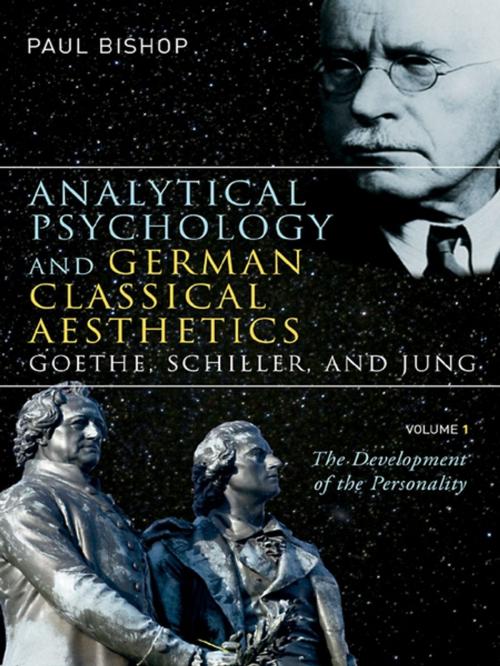Analytical Psychology and German Classical Aesthetics: Goethe, Schiller, and Jung, Volume 1
The Development of the Personality
Nonfiction, Health & Well Being, Psychology, Mental Health| Author: | Paul Bishop | ISBN: | 9781135447878 |
| Publisher: | Taylor and Francis | Publication: | August 7, 2007 |
| Imprint: | Routledge | Language: | English |
| Author: | Paul Bishop |
| ISBN: | 9781135447878 |
| Publisher: | Taylor and Francis |
| Publication: | August 7, 2007 |
| Imprint: | Routledge |
| Language: | English |
In this volume, Paul Bishop investigates the extent to which analytical psychology draws on concepts found in German classical aesthetics. It aims to place analytical psychology in the German-speaking tradition of Goethe and Schiller, with which Jung was well acquainted.
Analytical Psychology and German Classical Aesthetics argues that analytical psychology appropriates many of its central notions from German classical aesthetics, and that, when seen in its intellectual historical context, the true originality of analytical psychology lies in its reformulation of key tenets of German classicism. Although the importance for Jung of German thought in general, and of Goethe and Schiller in particular, has frequently been acknowledged, until now it has never been examined in any detailed or systematic way. Through an analysis of Jung’s reception of Goethe and Schiller, Analytical Psychology and German Classical Aesthetics demonstrates the intellectual continuity within analytical psychology and the filiation of ideas from German classical aesthetics to Jungian thought. In this way it suggests that a rereading of analytical psychology in the light of German classical aesthetics offers an intellectually coherent understanding of analytical psychology.
By uncovering the philosophical sources of analytical psychology, this first volume returns Jung’s thought to its core intellectual tradition, in the light of which analytical psychology gains new critical impact and fresh relevance for modern thought. Written in a scholarly yet accessible style, this book will interest students and scholars alike in the areas of analytical psychology, comparative literature, and the history of ideas.
In this volume, Paul Bishop investigates the extent to which analytical psychology draws on concepts found in German classical aesthetics. It aims to place analytical psychology in the German-speaking tradition of Goethe and Schiller, with which Jung was well acquainted.
Analytical Psychology and German Classical Aesthetics argues that analytical psychology appropriates many of its central notions from German classical aesthetics, and that, when seen in its intellectual historical context, the true originality of analytical psychology lies in its reformulation of key tenets of German classicism. Although the importance for Jung of German thought in general, and of Goethe and Schiller in particular, has frequently been acknowledged, until now it has never been examined in any detailed or systematic way. Through an analysis of Jung’s reception of Goethe and Schiller, Analytical Psychology and German Classical Aesthetics demonstrates the intellectual continuity within analytical psychology and the filiation of ideas from German classical aesthetics to Jungian thought. In this way it suggests that a rereading of analytical psychology in the light of German classical aesthetics offers an intellectually coherent understanding of analytical psychology.
By uncovering the philosophical sources of analytical psychology, this first volume returns Jung’s thought to its core intellectual tradition, in the light of which analytical psychology gains new critical impact and fresh relevance for modern thought. Written in a scholarly yet accessible style, this book will interest students and scholars alike in the areas of analytical psychology, comparative literature, and the history of ideas.















